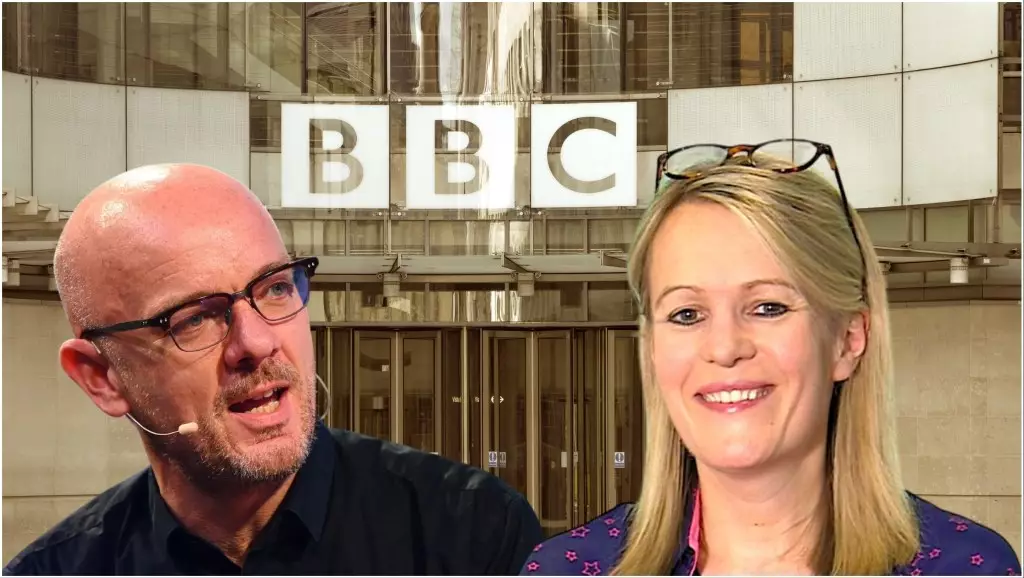As the British Broadcasting Corporation navigates a changing landscape fueled by intense competition from commercial counterparts, the search for a formidable leader to replace Charlotte Moore as the chief content officer becomes increasingly critical. This role embodies the nexus of creativity and strategy, and the stakes are monumental—not just for the BBC but for the fabric of British television itself.
Shifting Dynamics: Who’s Out and Who’s Still In
Recent developments have drastically reshaped the lineup of potential candidates. Patrick Holland, a prominent figure with his tenure at Banijay UK, was initially seen as a frontrunner with the cachet to revitalize the BBC’s offerings. However, his decision to remain in his current role reflects a common struggle within the industry—talent retention amid lucrative offers from commercial networks. Holland’s departure from the race indicates a strategic recalibration, hinting at broader trends where the BBC must rethink its compensation strategies to attract and retain top-tier creative talent.
This move also solidifies Kate Phillips’ candidacy, positioning her as the most viable internal option. As the unscripted division chief and interim content officer, Phillips is not only adept in the current BBC ecosystem but is also seen as a stabilizing force during this transition. Her leadership is bolstered by employee support and endorsement from influential producers, which is crucial in an industry where collaboration often dictates success.
Challenges and Opportunities
The looming salary concerns have been an impediment for external candidates. With Charlotte Moore’s salary pegged at £468,000 ($628,000), the opportunity gap becomes apparent. In the face of aggressive offers from commercial outlets, the BBC finds itself grappling with the dual challenge of luring fresh blood while also cultivating internal talent like Phillips, who stands ready to elevate the organization’s narrative.
Other names in the speculation mix, like Zai Bennett of BBC Studios Productions and Tom McDonald from National Geographic, further illustrate the varied industry dynamics at play. Each potential candidate brings unique expertise; however, their varying affinities towards the BBC will be critical in determining the final outcome of this search.
Implications for the BBC’s Future
The outcome of this leadership hunt is significant for the BBC’s future direction, especially regarding creative output and the organization’s relevance in an era dominated by streaming platforms. The debates on who is best suited for this role reflect not only personal qualifications but also the broader implications of content creation in a rapidly evolving media landscape.
This period of transition offers a golden opportunity for the BBC to reaffirm its commitment to high-quality programming that resonates with audiences while also strategically positioning itself to compete globally. As insights from various industry insiders reveal, having a leader capable of unifying diverse talents and fostering innovation will be instrumental in navigating this unfamiliar terrain.
Through these developments, it’s clear that the BBC stands on the precipice of a new chapter. While the decisions made in the coming weeks will ultimately dictate the corporation’s trajectory, the importance of strategic leadership has never been more pronounced. The right choice could invigorate an institution steeped in history, ensuring its place at the forefront of the creative industries in the UK and beyond.


Leave a Reply